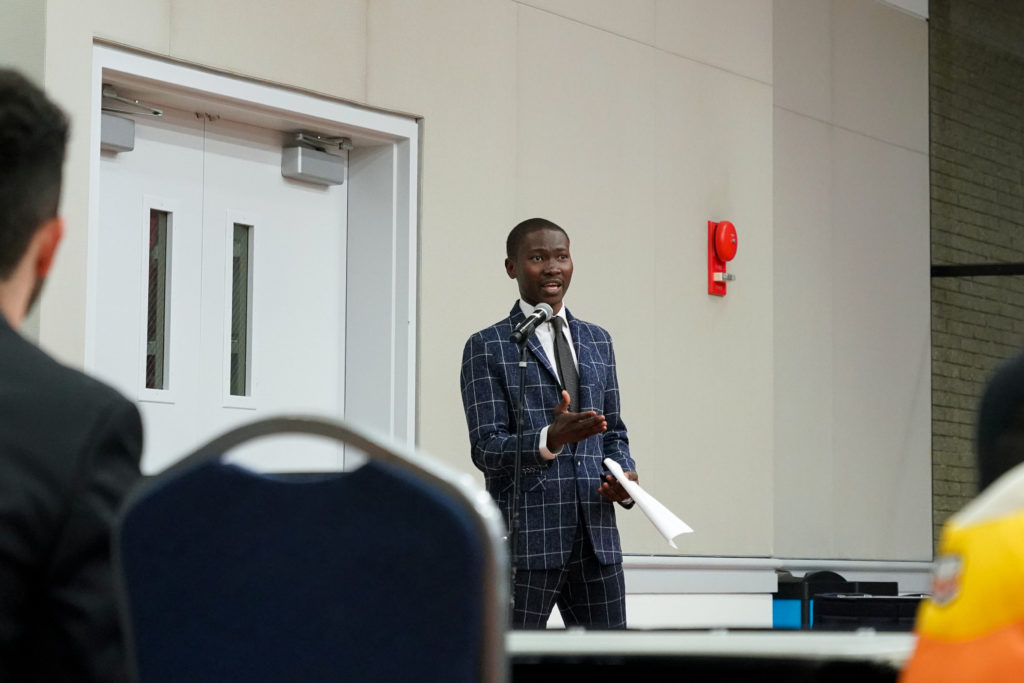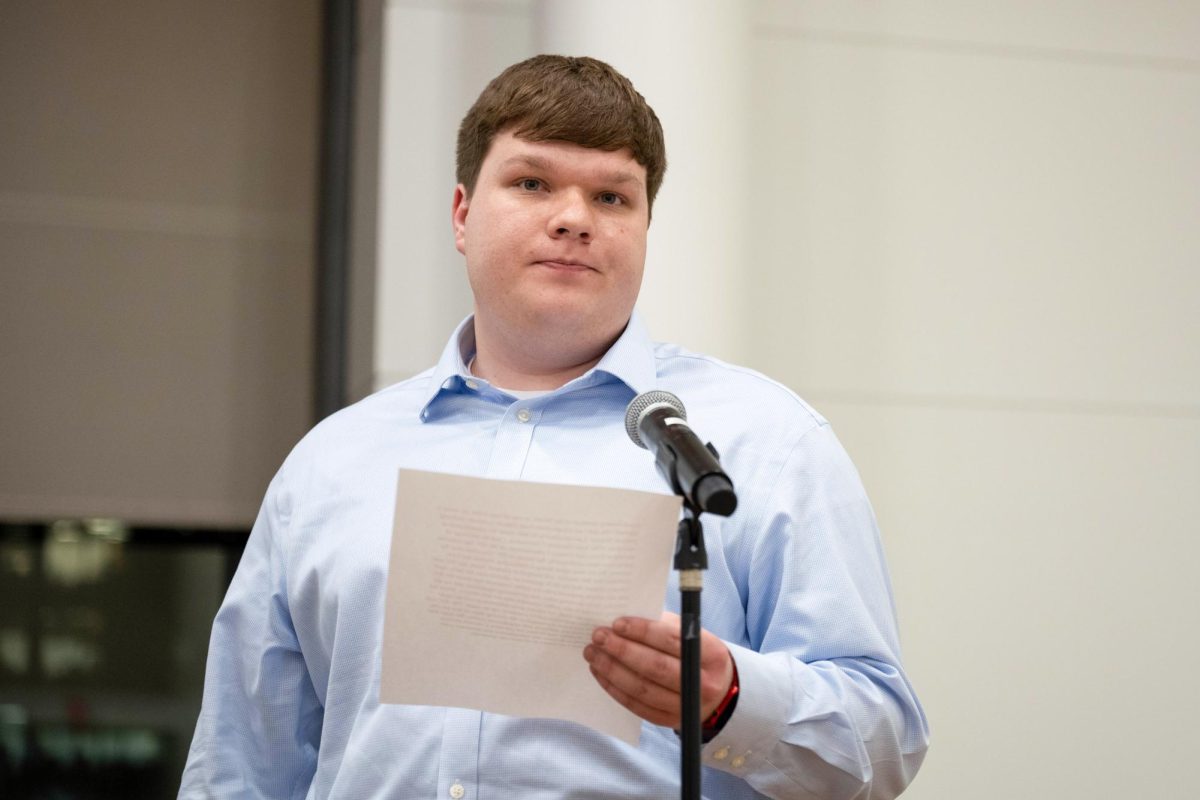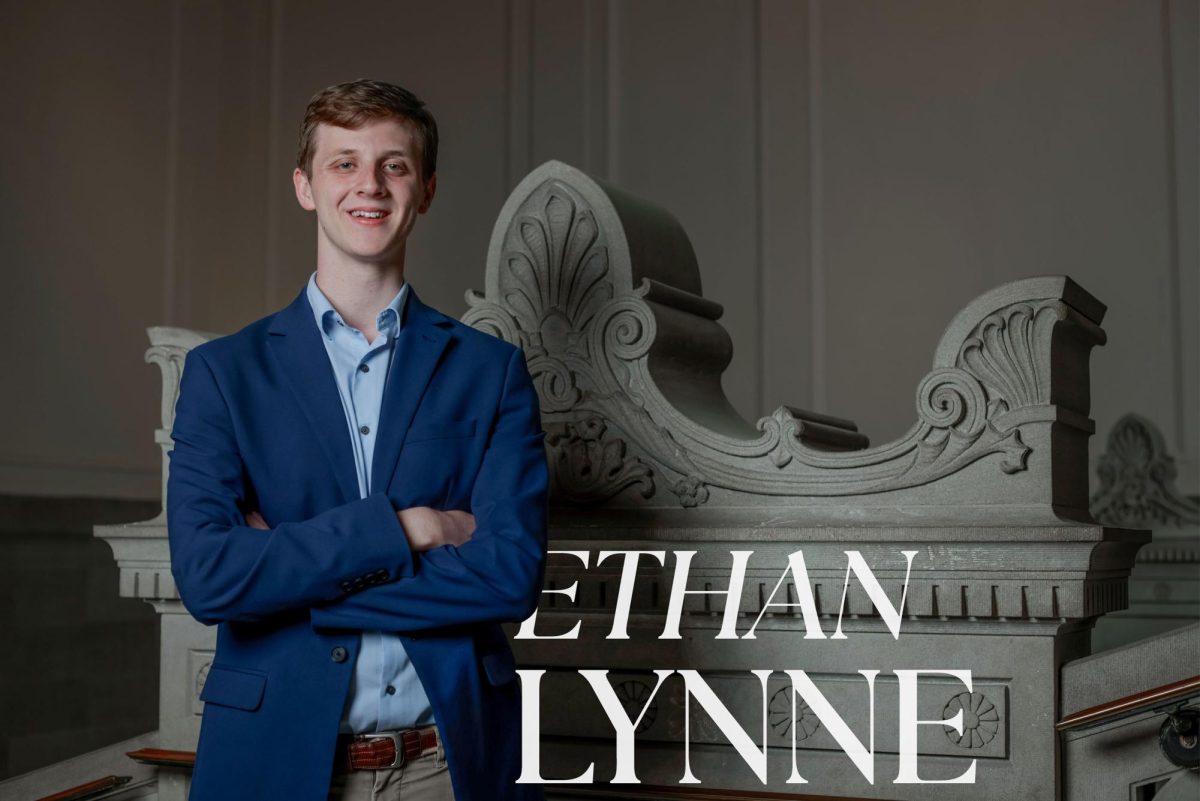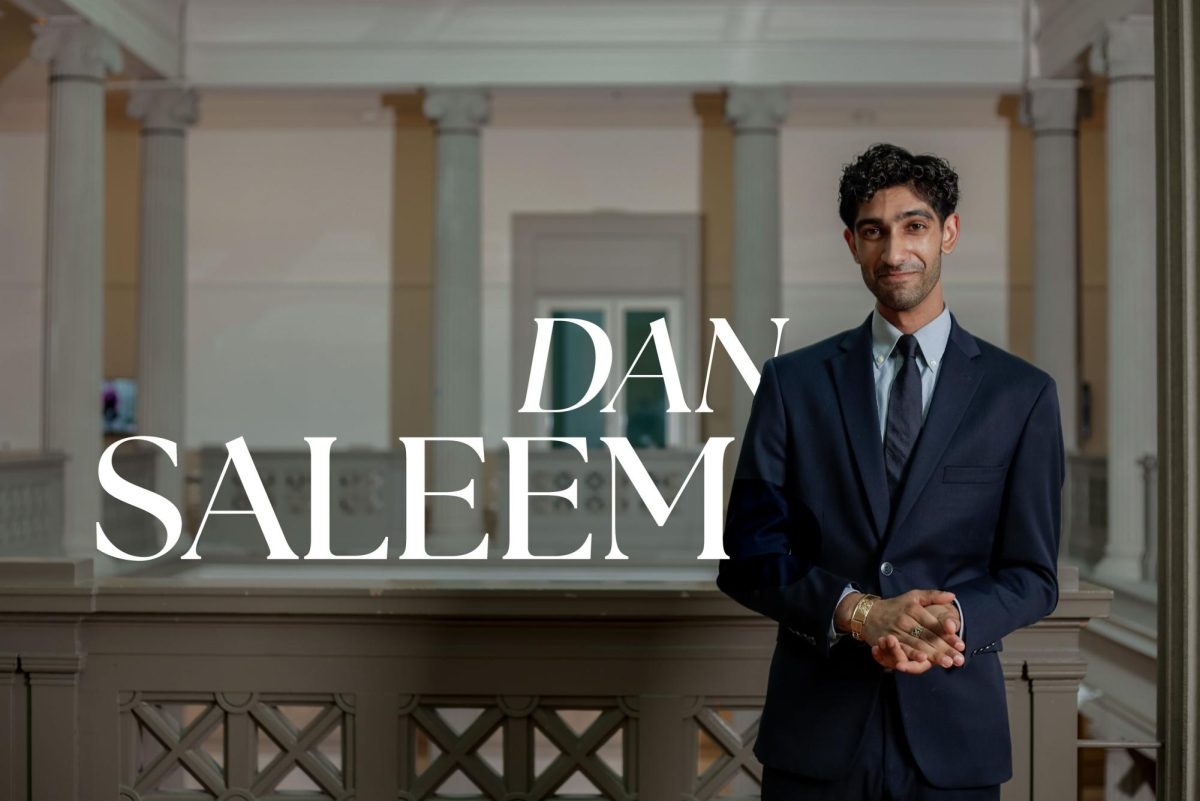After former Student Association President Christian Zidouemba moved to the United States from Burkina Faso in 2014 without knowing how to speak English, he called his time as SA president a privilege.
Zidouemba, who said he is the second person of African descent to become SA president, said it took him “a while” to adapt to living in the U.S. and that when he eventually began school at GW, he struggled to pay his tuition as a first-generation student. But he said despite this challenge, the students he met during his time at GW motivated him to run for SA president, go to student organization events and listen to students’ stories and struggles.
“At some point, I considered dropping out of becoming student body president so I could be able to afford to pay my tuition,” he said. “But, with students that I meet, the people that I’ve met have inspired me to lead by example.”
Zidouemba, a graduate student, said he is proud of his work during his term, including helping push for the installation of a Plan B vending machine, which officials placed in the University Student Center in January to support students’ access to reproductive health resources.
He said he worked with the Board of Trustees in the selection of Ellen Granberg as the next University president and fundraised more than $32,000 in a partnership with the GW Alumni Association in November to donate to the GW CARES fund, which helped “vulnerable” students who were struggling to buy groceries during the COVID-19 pandemic.
Zidouemba said he was not able to achieve some of his campaign goals, like adding additional languages like Spanish and Chinese to the financial aid website, due to his limited time in office. He said the website is currently only available in English and that GW needs to ensure they offer all language options so students and their parents can read it because of the increase in student diversity in recent years.
“Over the last five years, our University has diversified,” Zidouemba said. “We have increased the number of African Americans who go to the University, first-generation students who go to the University and international students, who constitute 20 percent.”
He said his biggest challenge as president was the “inside politics” of the SA. He said people “play politics” instead of advocating for students, pointing to when his executive cabinet tried “pulling him out” of office in early July because they disapproved of his role in the SA’s lack of response toward student demands for officials to fire Supreme Court Justice Clarence Thomas from GW Law. Zidouemba did not participate in the signing of a letter written by more than 50 student leaders demanding the University rethink its decision not to fire the justice.
Thomas later notified GW Law in late July that he was “unavailable” to co-teach a fall seminar.
Zidouemba said because of this adversity, he has learned “the hardest way” to advocate for students by working simultaneously to find solutions to student needs and maintain his legitimacy as president.
“Instead of focusing on those issues, I turned my back and focused and ensured that we have a Plan B vending machine on campus,” Zidouemba said.
Zidouemba said while it was “great” leading the SA, he has focused on student advocacy for the past five years and now believes it is time for him to focus on himself, his career and his family. He said he is looking to take courses over the summer to graduate early and is working on getting a job at Goldman Sachs, where he would work in finance or create businesses before then pursuing a job in politics.
He said his long-term career goal is to help develop a relationship between the United States and African nations and ultimately hopes to help the people of Burkina Faso become self-sufficient because it relies on other countries, like France and China, to import products. He added that terrorism has displaced more than 2.5 million residents of Burkina Faso.
“One of the biggest things I have in mind is being able to help the people of Burkina Faso be self-independent and not needing other countries,” he said.
Sinan Kassim, who worked as an adviser and later the director of external affairs under Zidouemba, said he saw many successes but also areas that “could have gone better.” He said he “obviously” views the installation of the Plan B vending machine as a success but said there were moments where Zidouemba and his administration couldn’t look past their “ignorance” to work for the students.
“I think the administration couldn’t look beyond themselves and engaged in divisiveness and weren’t willing to come on the table and sit down with partners and figure out how are we going to move forward,” Kassim said.
Kassim said while he did not want to comment on anyone’s character and wished to avoid “slander” because he believes everyone joins the SA for the right reasons, he felt there was a lack of direction during Zidouemba’s presidency and that it didn’t live up to its promise. He said he hopes the SA’s new administration under SA President Arielle Geismar and Vice President Demetrius Apostolis can make a “tangible” difference.
“I don’t believe anybody had a bad intention, but it’s just a lack of leadership, lack of strategic vision, and there’s not much you can do from within those parameters other than just go for the ride and do the best work you can,” Kassim said.
Arya Thakur, who served as Zidouemba’s director of inventory until October 2022 when he took over as treasurer, said he and Zidouemba have developed a “friendship” throughout his time in the SA. He said he noticed Zidouemba has grown as a person and cares about the people in the administration because he has worked to maintain relationships with members throughout his time in office.
“I feel like within his administration, a lot of things were hurled at him,” Thakur said. “He wanted to run for re-election, and that didn’t go through. He had the coup at the beginning of the year, and that tarnished his reputation with students.”
Thakur said collaboration with Zidouemba was always “casual” and that anytime he or another member of his administration had an idea for an initiative, Zidouemba was “very open” to suggestions.
Thakur said Zidouemba had a “hands-off” but also a “hands-on” approach, where he was ready to allow others to take the reins when necessary. He said Zidouemba allowed Neharika Rao and Aiza Saeed, who served as the executive secretary of diversity, equity and inclusion and the communications director, respectively, to take the lead in working with officials to install the Plan B vending machine.
“You could just go knock on his door in his office and ask him a question,” Thakur said. “You could brainstorm and sit in his office, and you would get things done.”








